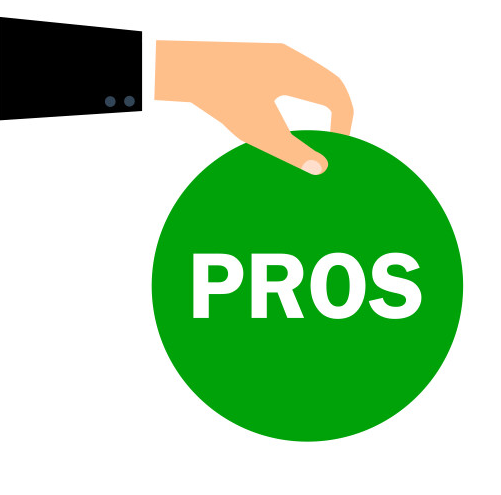Introduction
Investing in commercial real estate has long been a popular way to create wealth or get out of poverty. But to the newcomer entering the CRE world, it’s overwhelming. We aim with this guide to walk you through just how to invest in commercial real estate like a pro. From the kind of money you could make to how investing in commercial real estate benefits you, how much you’ll pay in expenses, and expert tips and strategies, we‘ve got it covered. At the end of this educational piece, you will be well on your way to making smarter, more confident investments.
Understanding Commercial Real Estate (CRE)

Commercial real estate deals with properties mostly occupied for business purposes and less for occupation. CRE covers all kinds of property ranges, including office buildings, retail, industrial warehouses, and multifamily apartments of five or more units. Typically, CRE investors source revenue through rental and lease income and investment or rises in asset values.
How Much Can You Earn from Commercial Real Estate?
Commercial real estate creates high earnings, though this would be tremendously influenced by location, type of property, current market situation, and investment strategy in place. On average, investment in commercial real estate generates a yield between 8 and 12% per year, which is much higher in comparison to residential properties at an approximate 1-4% per annum. The breakdown of returns on investment by type of real estate is as follows:
- Office Spaces: 7-10% annual ROI
- Retail Spaces: 8-12% annual ROI
- Industrial Properties: 10-12% annual ROI
- Multifamily Properties: 6-10% annual ROI

Key Factors Affecting Earnings
- Income Location: Generally, projects in high-demand, urban locations tend to produce more revenue.
- Tenant Quality: The tenants with good financials and whose leases are long-term help reduce vacancy.
- Market conditions: Grossly result from better economic activities, occupancy, and rent rates tend to increase.
Pros of Investing in Commercial Real Estate

- Higher Income Potential: This real estate typically generates higher income compared to residential real estate.
- Diversification: CRE provides diversification in your portfolio and thus reduces the risk.
- Longer Tenor: Commercial leases are relatively longer in comparison to residential leases, resulting in stable income.
- Inflation Hedge: CRE investment will significantly move in line with inflation, especially in growing markets.
- Tax Benefits: Deduction of mortgage interest, write-down of property value, and other expenditure related to the same.
Cons of Investing in Commercial Real Estate

- Higher Initial Investment: The initial cost is higher compared to residential, as in most cases, CRE requires something much higher than a residential property to start.
- Market Volatility: An economic downturn leads to vacancy and devaluation of the market.
- Management Complexity: The needs of commercial property usually require professional management in order to handle the problems of tenants and leases.
- Illiquidity: The CRE asset does not have an easy liquidation at an impressionable price; it will take months or sometimes years to get a liquidation price on the asset.
- Regulatory Compliance: These zoning laws and other regulations are much stricter as compared to commercial properties.
How to Start Investing in Commercial Real Estate

- Property Type: Choose a type based on your risk-appetite level and your expectation of returns; either offices, retail, industrial, or multifamily.
- Market Research: Find cities that highly demand that kind of property type. Usually, cities with economic growth and low vacancy rates will be a good choice.
- Financing Options: A good number of financing options exist, but there are always traditional loans, crowdfunding platforms, and REITs, each with its own benefits and considerations.
- Due Diligence: Anything on your list to buy should undergo intense due diligence that may include checking the stability of your tenants, the state of the property, and the market conditions around you.
- Building a network: CRE investments are basically connected with relationships with brokers, contractors, property managers, and lawyers. A good network opens doors to big deals and makes property management easier.
Types of Commercial Real Estate Investment Strategies

- Buy and Hold: A buy-and-hold investor buys a property to generate rental income over a long period. It is ideal for investors who seek steady cash flow and asset appreciation.
- Value-Add: In a value-added strategy, you buy a property that needs improvements in the form of renovations or improved management practices to enhance its value as well as rental income.
- Development: It is development in the form of buying land and erecting new commercial buildings. The strategy is risky but can produce nice returns, especially when economies are hot.
- Real Estate Investment Trusts (REITs): REITs allow you to invest in commercial real estate without owning it directly. The REITs that are publicly traded provide a more liquid way to access the CRE market.
Tips for Success in Commercial Real Estate Investing

- Understanding Your Market: Marketers assess local market trends and economic indicators to make profitable investment decisions.
- Leverage Technology: CRE data platforms and AI may be used in situations to ease property analysis and decision-making.
- Strategic Partnering: Consider making partnerships or joining syndicates to acquire greater resources and expertise.
- Diversification: Invest in different property types or markets to spread the risk and maximize potential returns.
- Long-term vision: CRE investments require much patience. Never yield to impulsive investment decisions, instead, look for value addition.
Conclusion
Commercial real estate investment can be a very lucrative business activity for investors as it offers substantial income opportunities and multiple returns. However, investment in commercial real estate requires deep knowledge and strategy and the willingness to deal with the sophistication of property management and changing market variables. By following these steps and strategies, you can take off on the right track toward successful commercial real estate investment.
FAQs
How do I make money with commercial real estate?
- Investors earn income from CRE primarily through rental payments from tenants and property appreciation. Some may also increase returns through property improvement (value-add) strategies or by selling properties at a profit when the market is favorable.
Can I invest in commercial real estate without owning property?
- Yes, you can invest in commercial real estate indirectly through REITs (Real Estate Investment Trusts), which are companies that own, operate, or finance income-generating properties. REITs allow you to invest in CRE with a smaller amount of capital and without directly managing properties.
How long should I hold onto a commercial property?
- Holding periods vary by strategy. Long-term buy-and-hold investors may hold properties for 10-15 years or longer, whereas value-add investors might sell within 3-7 years after increasing a property’s value. Market conditions, cash flow needs, and personal goals will influence the ideal holding period.

Owner of Paisewaise
I’m a friendly finance expert who helps people manage money wisely. I explain budgeting, earning, and investing in a clear, easy-to-understand way.

